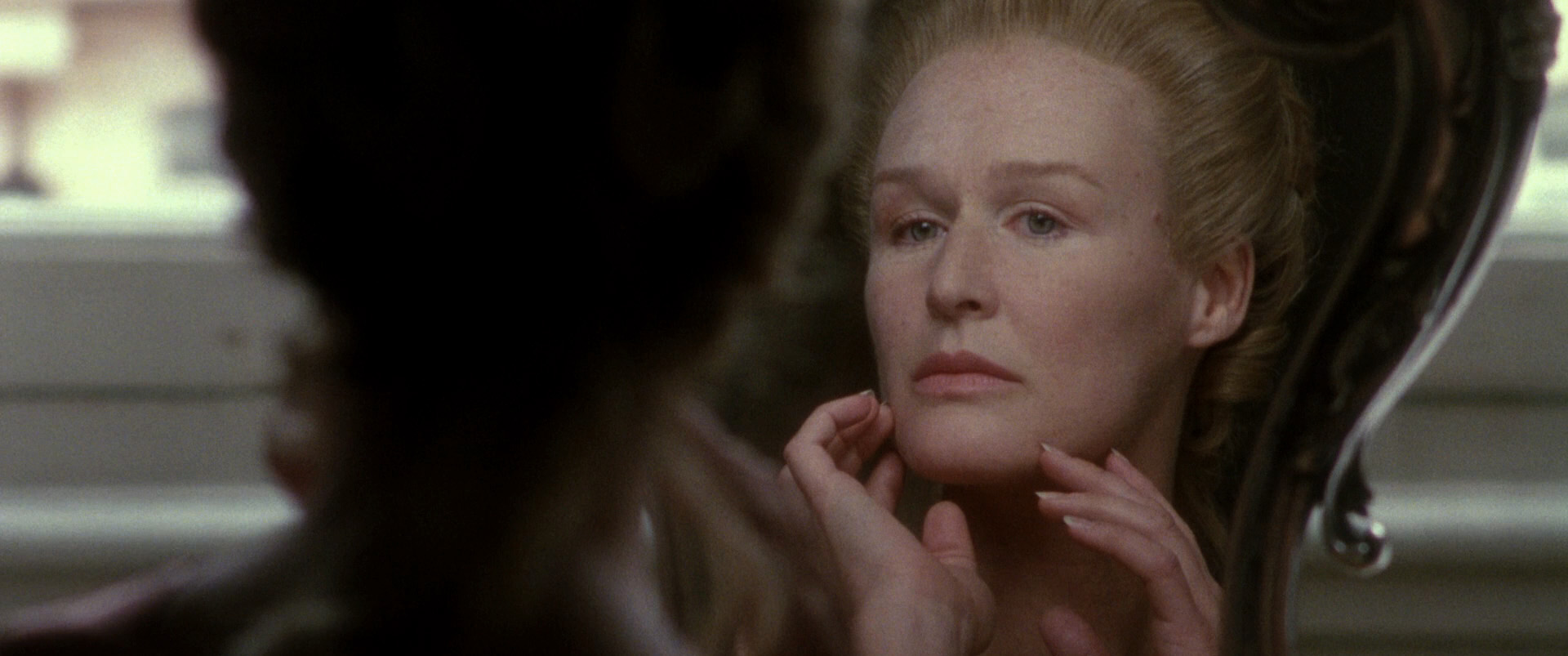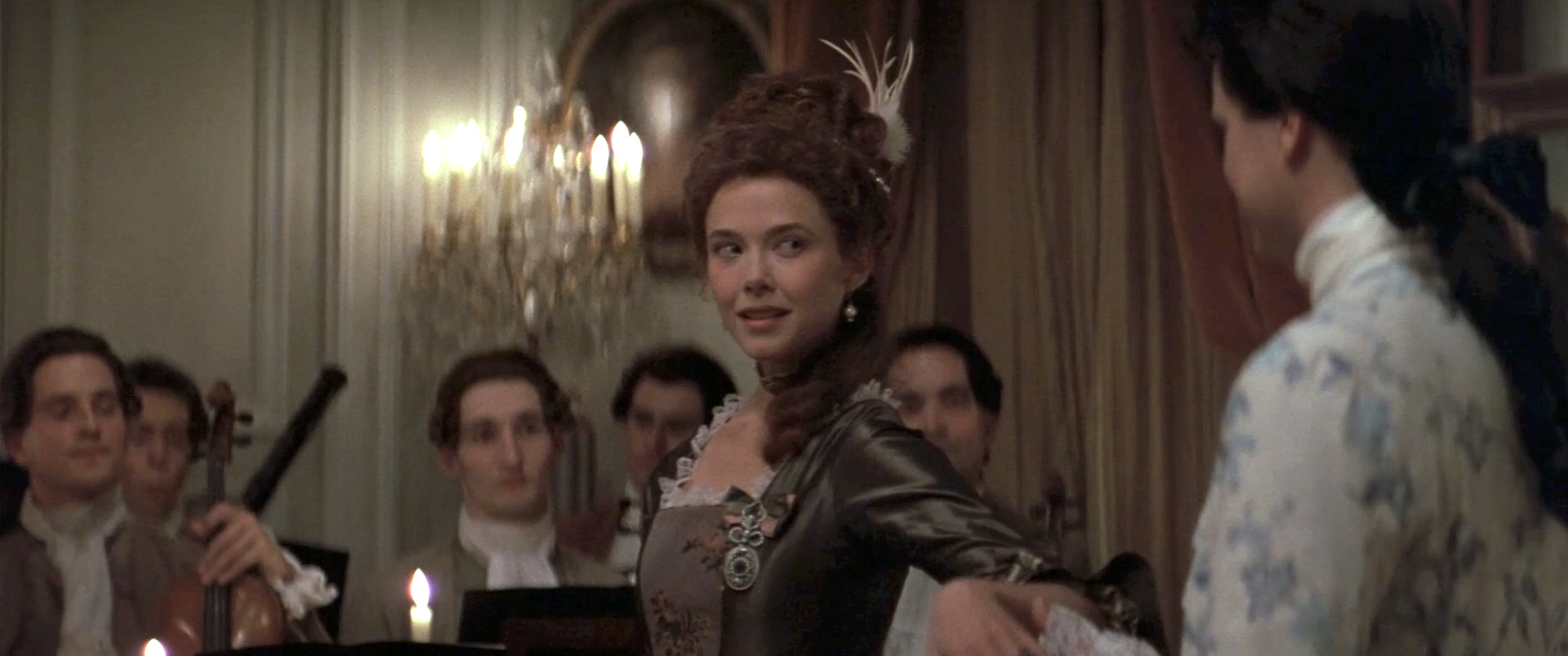Merteuil x Woolf
At the end of the 1980s, two adaptations of the same source novel appeared in cinema theatres around the world within the space of one year. The book was Les Liaisons dangereuses, a 1782 novel by French author Pierre Choderlos de Laclos. The two adaptations were helmed by Stephen Frears (Dangerous Liaisons, 1988) and Milos Forman (Valmont, 1989)(1).
Each version features a stand-out performance from its lead actress, Glenn Close and Annette Bening respectively. They both embody the Marquise de Merteuil, an unapologetic and whip-smart schemer who refuses to accept the limited and predefined role that society has in mind for her and her gender. Merteuil wields her considerable psychological and amorous prowess as weapons in a war with, and on, men. She invented the term one-upwomanship, one could say.
In both movies, the Marquise de Merteuil offers up razor-sharp analyses of the position of women in her not so distant (nor dissimilar) era. Merteuil’s thoughts on the matter seem to presage feminists such as Virginia Woolf, whose writings would feature equally scathing critiques of patriarchy. This connection was not lost on film student Tine Galicia. She turned her observation into this video essay.
The video essay pairs up Choderlos de Laclos’ character with the writings of Virginia Woolf. Woolf’s feminism, as expressed in the essay A Room of One’s Own, proves to be the perfect companion piece to the cinematic interpretations of Frears and Forman, and to the iconic movie character as it was embodied by Close and Bening.
(1) The head start and the awards successes of Frears’ version limited the (box office) success of Forman’s effort, which arrived in theaters one year later.
This video essay includes clips from:
Dangerous Liaisons [feature film] Dir. Stephen Frears. Lorimar Film Entertainment et al., USA, 1988. 119 mins.
Valmont [feature film] Dir. Milos Forman. Renn Productions et al., USA, 1989. 137 mins.
The music used is:




